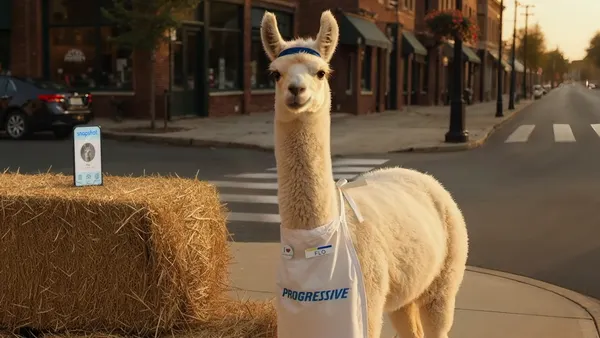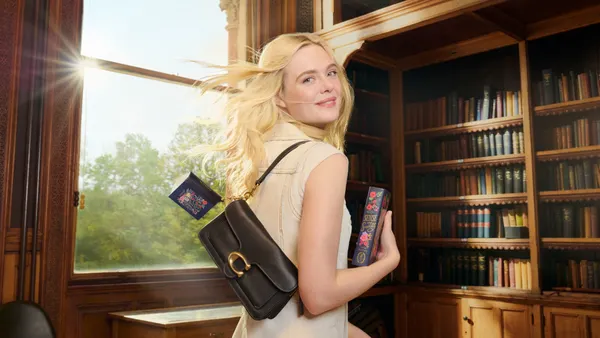Dive Brief:
- Mercedes-Benz USA is teaming up with toymaker Mattel to show girls they can be anything by giving away thousands of toy cars, according to a press release. The die-cast Matchbox miniature of the Mercedes-Benz 220SE is a replica of the car driven by female driver Ewy Rosqvist when she shattered world records — and a glass ceiling — to win the three-day Argentinian Grand Prix in 1962.
- The automaker says that, according to researchers, most young girls would trade in the gift of a toy car for a tea set, because of cultural expectations formed at an early age. To counter that expectation, Mercedes-Benz made a short film, "No Limits," where young girls' choice of toy tea sets over toy cars is changed by watching a short clip highlighting Rosqvist's historic win. The film was created by R/GA, Mercedes-Benz's partner on social media and digital campaigns.
- The campaign, which will give away the toy car in first grade classes and sell them in stores across the U.S. beginning next year, builds on the company's previous release of a short film, "Ewy Rosqvist: An Unexpected Champion." Proceeds from the toy car sales will be used to make and distribute more replicas of the 220SE. A discussion guide and a teaching toolkit are also available.
Dive Insight:
With its new campaign and Mattel tie-up, Mercedes-Benz becomes the latest brand to introducing messaging supporting women and countering gender bias. Sizable majorities of both women (79%) and men (75%) favor brands that promote gender positivity in their messaging, according to a Facebook data analysis, and a separate study found that brands help break down gender stereotypes. So while turning girls into car fans could eventually have an effect on the company's bottom line, being on the side of gender equality could improve the brand's standing with current car buyers.
This isn't the brand's first effort to boost the trend. In March, the company unveiled a four minute film on YouTube, "Bertha Benz: The Journey That Changed Everything," to help celebrate International Women's Day. It told the story of the first long-distance journey in a Mercedes-Benz, undertaken more than 130 years ago by Bertha Benz, wife of company founder Carl Benz. Previously, the company launched a different short film on Instagram's IGTV to also celebrate Bertha's drive.
The company's gender equality push has not been limited to consumer marketing: in 2015, it began the "She's Mercedes" initiative to boost the number of women holding leadership roles inside the company, through mentoring programs, events, networks and training programs.
Mercedes is not alone in pushing for gender equality. Shoe maker New Balance in January unveiled a music video that celebrated the connection between music and running culture, and encouraged women to break barriers. Also in January, dating app Bumble launched a yearlong campaign for women empowerment featuring tennis champion Serena Williams. In honor of Women's History Month this March, United Airlines featured a design contest for a woman artist to create a mural on a Boeing 757, and Budweiser reimagined some of the sexist ads it ran in the '50s and '60s to portray women in a more positive, independent light.
CPG giant Procter & Gamble has also been a leader in these efforts, calling on marketers to improve diverse portrayals of consumers. P&G's Pantene hair care brand this month launched a search tool designed to provide less biased results for queries across 150 search terms, while the parent brand in April released two short documentaries as part of its Queen Collective effort.













